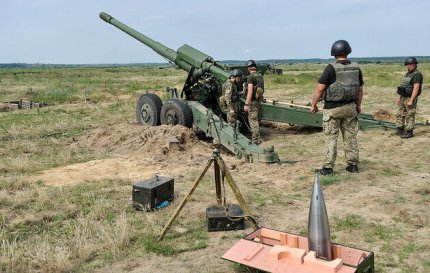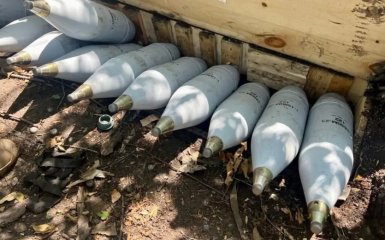In February, the President of the Czech Republic, Petr Pavel, promised to transfer 800,000 artillery ammunition to Ukraine, but by the end of this year, only about half a million of the promised amount will be transferred to Kyiv.
Points of attention
- The Czech Republic's pledge to transfer 800,000 artillery ammunition to Ukraine has been hindered by a shortage of funds, leading to a partial delivery of only about half a million munitions by the end of the year.
- Supply cuts are attributed to increased ammunition prices, global market competition, and Russia's pressure on suppliers involved in transferring ammunition to Ukraine.
- The quality of purchased ammunition is a significant concern, with approximately half of the shells being of low quality, raising doubts about the effectiveness of the supplied materials for Ukraine's armed forces.
- Despite the Czech initiative, delays in transferring ammunition to Ukraine highlight the challenges faced by countries involved in supplying munitions, as they navigate market dynamics and external interference from Russia.
- The discrepancies in promised versus delivered ammunition quantities underscore the complexities of international arms trade, emphasizing the need for transparency and reliability in fulfilling commitments to conflict-affected regions like Ukraine.
What is the cause of problems with the purchase and transfer of ammunition to Ukraine
The NZZ article emphasizes that the first batch of munitions within the framework of the Czech initiative, in the amount of 45,000, arrived in Ukraine only in June.
According to the head of the Czech Foreign Ministry Jan Lipavsky, Ukraine will receive more than a third less than the initially promised amount of ammunition if the partners do not allocate more funds for the purchase.
Czech government officials emphasized that not all members of the coalition for the purchase and transfer of artillery shells to Ukraine contributed funds, which is one of the reasons for the reduction in supplies.

However, a more important reason is the increase in ammunition prices due to increased demand on world markets. Former Deputy Minister of Defense Tomasz Kopechny, one of the initiators of the initiative to supply ammunition to the Czech Republic, explained that the promised 800,000 shells now cost twice as much as the originally estimated 1.5 billion. Prices on the international market have increased fourfold since 2022, - the authors of the material explain.
What problems are faced by the countries supplying ammunition to Ukraine
The publication also emphasizes that after the Czech Republic started implementing this initiative, Russia actively began to put pressure on suppliers who sell ammunition to the Czech Republic and other countries for transfer to Ukraine.
According to media reports, ammunition for Ukraine is purchased in South Africa, South Korea and Turkey.
Kopechny emphasizes that deals are mostly concluded with whoever makes the first advance payment.
If you procrastinate, sometimes you come back and hear: "That's it, the weapon is gone." And then you realize that the ammunition went to the Russians, - he explains.
Journalists emphasize that under such circumstances, it becomes clear why Ukraine will receive only 155-mm caliber shells by the end of the year, despite the fact that earlier it was also promised to transfer another 300,000 122-mm ammunition, which are used in Soviet-made cannons.
At the same time, Russia is not interested in 155-mm ammunition, which is used exclusively in Western-style weapons.
At the same time, 122-mm ammunition would be very important for Ukraine, since it has a large number of Soviet-made artillery systems.
In addition, as the article emphasizes, fierce competition allows manufacturers to sell ammunition of extremely low quality.
It was already known that many of the artillery shells that Russia received from North Korea were defective.
However, Western suppliers also complain that about half of the ammunition bought in Africa and Asia is of poor quality and needs to be repaired first.
Thus, it remains unknown how many Czech shells will arrive in Ukraine in excess of the guaranteed volume by the end of the year.



